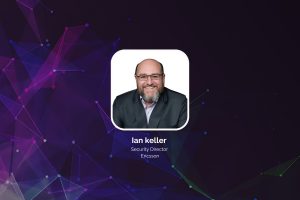In 2023, even well-prepared organizations heavily invested in cybersecurity still fell victim to determined attackers.
The complexity of security capabilities in modern organizations has contributed to these breaches, with higher stakes than ever before. Looking ahead to 2024, a holistic approach to cybersecurity will be essential, considering microeconomic factors, emerging tech, and cloud risk, among other aspects.To shed light on the current cybersecurity landscape and emerging trends, Kalpana Singhal engages in a deep conversation with Justin Hong, the Chief Information Security and Privacy Officer of Panasonic, Asia Pacific.
Justin shares his insights, highlighting the shift in digital transmission during the pandemic and the uncertainties arising post-pandemic. He emphasizes the need for organizations to adapt to geopolitical changes, rising interest rates, and inflation. Furthermore, Justin discusses the increasing utilization of technology, especially in operational and Internet of Things (IoT) domains, to enhance productivity and cater to the demand for personalized products in smaller volumes.
In the cybersecurity domain, Justin stresses the significance of addressing security beyond IT, particularly focusing on operational technology (OT) and IoT. He emphasizes the criticality of securing primitive devices and mitigating potential cyber attacks, which could have severe implications for businesses, supply chains, and even cause fatal incidents.
Justin also delves into the pivotal role of artificial intelligence (AI) in cybersecurity. He emphasizes the need for AI to match the level of sophistication displayed by attackers, enabling faster analysis, detection, and response to cyber threats. Moreover, Justin discusses the importance of responsible AI usage and its potential to aid in incident response, regulatory compliance, and data privacy protection.
Moving forward, Justin emphasizes the importance of incorporating privacy and security considerations from the outset of projects, following a risk management approach. He also highlights the significance of data security, including data loss prevention and data masking, to comply with evolving regulations and protect sensitive information.
As the conversation progresses, Justin elaborates on the significance of cyber resilience, emphasizing the need for a robust security culture and preparedness for potential breaches. He highlights the critical role of stakeholder management, including the involvement of top management, legal, and branding personnel in incident response and communication.
In the face of a zero-day attack, Justin emphasizes the need for swift action, including system isolation, forensic analysis, and impact assessment. He stresses the importance of compliance with local regulations, informing affected parties, and considering cyber insurance to mitigate business impact.
Throughout the discussion, Justin’s expertise and insights shed light on the evolving cybersecurity landscape and the strategies organizations can employ to navigate complex challenges and protect their digital assets.
As the conversation draws to a close, Justin shares his experiences and insights, providing valuable perspectives on managing cyber incidents and building cyber resilience.
This comprehensive discussion with Justin Hong offers a wealth of knowledge and practical strategies for navigating the dynamic cybersecurity landscape, making it a valuable resource for organizations seeking to bolster their security measures and adapt to emerging cyber threats.






















